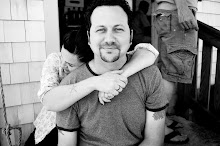It appears in tomorrow's paper:
Martial law? There's no such thing: A guest column by Billy Sothern
In the wild days after Hurricane Katrina, when a perverse game of telephone turned the actual chaos and misery occurring here into fictions of mobs invading Children's Hospital and shooting down medical helicopters, word was reportedly spread among the rank and file of the New Orleans Police Department, "We have authority by martial law to shoot looters."
It has been reported that there is now an internal NOPD investigation as to whether a "shoot looters" order was in fact given. Whether or not such an order or authority was carried out is not known at this time. What we do know is that, in the end, at least 11 unarmed people were shot by NOPD officers in the aftermath of Hurricane Katrina under seriously questionable circumstances.
Of those, five died and can be rightfully added to Hurricane Katrina's 1,500-plus death toll in Louisiana. And 16 NOPD officers are now charged with federal criminal violations related to these incidents and the subsequent cover-ups.
One would think that if martial law was in fact permissible under Louisiana or U.S. law, that we would be hearing that various of these shootings were justified under that theory. In fact, martial law doesn't exist in our state and there is no authority under any law in this country that would justify shooting civilians who do not pose an immediate threat of death or serious bodily harm to officers or others.
Martial law -- literally, the law of Mars, the God of War -- is a suspension of existing civil laws and authority during a time of war or when civil authority has ceased to function, which suspends the ordinary administration of justice.
Generally, it places all legal authority in the will of the commander of an army and "is established and administered in a place or district of hostile territory held in belligerent possession, or, sometimes, in places occupied or pervaded by insurgents or mobs," in the words of Black's Law Dictionary.
Because our system of government is predicated on the rule of law, there are few historic precedents for martial law in America's history books. Tellingly, the example most often pointed to is President Lincoln's Civil War suspension of Habeas Corpus, a common law right of judicial review of a prison or death sentence, when Lincoln also established military courts in the South and West.
These measures were rejected by the United States Supreme Court, which said that even the Civil War did not justify what was essentially the imposition of martial law by Lincoln: "Civil liberty and this kind of martial law cannot endure together; the antagonism is irreconcilable; and, in the conflict, one or the other must perish."
If Abraham Lincoln, the president of a fractured country at war with itself, didn't have the constitutional authority to declare martial law, it can be safely assumed that a mayor or a police chief or captain, even in post-levee failure New Orleans, also lacked that authority.
So it's hard to know what the mayor, Ray Nagin, was saying when he told a journalist, "I've already called for martial law in New Orleans," as was recently rebroadcast in PBS's stunning "Law and Disorder" documentary on Frontline. If indeed any police officers even heard this order, they were obviously in no position to research the constitutionality of the claim at the law library of the Louisiana Supreme Court. Instead, they would have understood that the mayor was telling the world that he had lost the city to "insurgents" and "mobs" and that they needed to take it back without regard for the normal rules.
In the defining moment of crisis, when panic and passion were already so likely to overcome judgment, it appears that those in charge illegally threw out the rule of law. That they might have panicked and believed the rumors and very worst exaggerations about the citizens of our city is no excuse. The problem with the Law of Mars is that it easily confuses the blood of the guilty with the blood of innocents.
Of the many lessons learned from the chaos and confusion following Katrina, we now know that sometimes the only protection we really have is the rule of law. We abandon it at our peril.
Billy Sothern is a criminal defense attorney in New Orleans and the author of "Down in New Orleans: Reflections from a Drowned City." His email address is billysothern@gmail.com.

